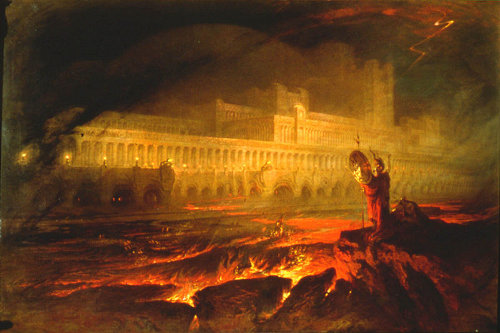
One Filmer, defending witches in England, is said to have made this ingenious defense. His clients were charged, as was usual, with being accessory to the devil. Under the common law there could be no accessory unless there was also a principal; and no accessory could be convicted until the principal was convicted; for if the principal be acquitted there is no guilty principal and hence can be no accessory. Consequently until the principal be convicted the accessory cannot be tried.
Taking advantage of this state of the law, Filmer argued that his clients could not be tried until their alleged principal had been tried and convicted, and how could this be done? Only according to the law of the land. In the first place how could the devil be summoned? The officer serving the precept would either be obliged to go to the devil and summons him personally, or, failing that, would be obliged to leave a copy of the precept at his usual place of abode. Although admiring friends of the officer may from time to time have advised him to do both, yet the practical application of such advice is an impossibility. Then assuming the respondent to be duly summoned, he would be entitled to a trial by a jury of his peers. But His Satanic Majesty has no peers, and even if he had, they would be certain to be in collusion with the respondent and would certainly acquit him. Under any circumstances therefore how could his accessories be tried?
— H.C. Shurtleff, “The Grotesque in Law,” American Law Review, January-February 1920
